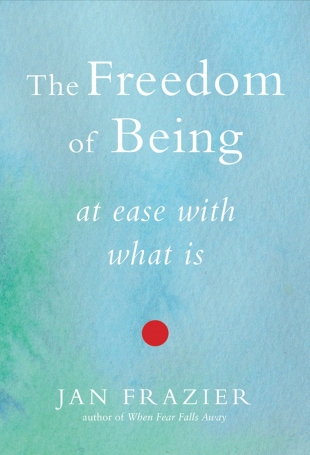"There's an ongoing sense that things just happen. Gone is the familiar impression of there being a you (or a someone else) that's doing something. In part, this is because your sense of where 'you' leave off and the rest of the world begins doesn't feel significant. Moreover, you don't experience yourself as separate from the living moment. What you do and what you are, in a given now, are a unity. In the experience of both time (doing) and space (location), the accustomed boundaries are not a part of perception. Ease attends all you do; this is part of the sense that everything just happens. Things seem to unfold without strain. There's a freedom from effort, even as you're able to apply yourself with focus and perhaps great force, if the situation calls for it.
"In freedom, you do not seek security, because you don't live in the future, and you don't experience yourself as being at risk. 'You' are all-that-is, and it's understood that within all that is, things simply are as they are. You're blessedly free of any discomfort with not knowing, with not being able to control, predict, or understand a thing. You're at ease in the presence of instability.
"When you are free, you no longer experience attachment — to the roles you play, to possessions, to ideas, to the outcome of action, to the people you love. You are free of ferocious desire, of the driving 'need' to get (and keep) what you want. Even so, you have a rich capacity to savor, to experience pleasure. You can still love, still enjoy, still (yes) want — prefer one thing over another — but getting it or not getting it will feel very much the same to you, since (as always) whatever is is always primary, obliterating in a subtle (but potent) gesture of 'is-ness' anything that might have been.
"Love in the awake state is unencumbered by attachment and the fear it engenders. In normal life, where the ego holds sway, love often is tied up with need, with desire and the longing for fulfillment. In awakeness, where there's no need for ego gratification, love is free to flow without fear of loss, without grasping or the wish to change the other person. Without need or fear in the picture, you're able to love unconditionally. You don't need to be loved; you don't need to be needed. But when love is in the picture, it's wide-open, generous, without constraint.
"Liberation means you are free of identification with all that has defined you in the past: your beliefs, roles, history. Some of these things will still function, in a superficial or practical way, but you no longer take your sense of self from them.
"You've become free of the tyranny of the mind. It no longer runs you; rather, it serves at your pleasure. Its default condition is quiet. If you need to think about something (usually something practical), your mind is able to function with remarkable clarity, creativity, and efficiency. When you're finished needing to think, you are able to stop, leaving the mind to rest. You've become free of mind-caused stress, of anxiety.
"The underlying 'feeling' state is stillness, alertness, a subtle orientation of tenderness. If you're in the presence of suffering, you may feel it, perhaps even keenly. (You can also readily decline to 'go there,' if you choose, simply by directing your attention elsewhere, or by declining to put it anywhere at all.) If something difficult comes to your own life — the loss of someone you love, or physical discomfort — you surrender fully to the pain. You're not afraid of feeling the fullness of whatever is real here and now. You've become free of the habit of resistance.
"Being free means freedom from time. You're free of the belief that something important can happen in time. Of the sense that the future has the potential to make things better, or that there's something to be feared in the possibility of change or loss. You're free of ambition, of the idea that you need time in order to finally experience fulfillment, and free too of the constant feeling that you don't have enough time. You are free of hope, and free of the burden of the past, of all it has delivered you: the weight of memory, of conditioning, of patterns, of unresolved anguish. New life — unfolding life, as it comes moment to moment — is not felt to cling to you anymore, to be carried over (as residue in the form of emotion or thought) into whatever is next. As each moment happens, it is felt quickly to be gone, supplanted by the compelling reality of this moment, and now again this one. New conditioning does not take place.
"Living in the present means you don't particularly look forward to things (as before, when looking-forward-to was a way to endure the imperfect present). This is not because you believe nothing fun or rewarding is in the future. It's because the future doesn't feel real.
"Nothing is real but now. And now is enough. It's abundant."
